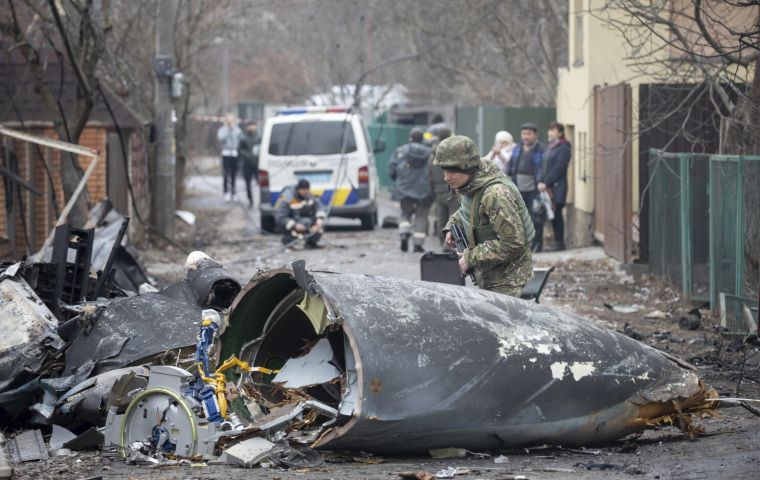MercoPress. South Atlantic News Agency
What will happen in the world wheat market if the Russia/Ukraine conflict is not over by June
 Russia and Ukraine besides 30% of wheat also provide 19% of corn world exports, 80% of sunflower oil exports
Russia and Ukraine besides 30% of wheat also provide 19% of corn world exports, 80% of sunflower oil exports The Russian invasion of Ukraine has also caused major disruptions in the agricultural commodities' markets with soaring prices for wheat, corn, soybeans... and much speculation.
This is because the two countries, once referred to as “the breadbasket of Europe”, produce 30% of the world's wheat exports and their natural markets in the Middle East and North African countries will likely opt for purchases in other sources since shipments from the Black Sea could be interrupted.
Ukraine’s ports have not yet been damaged by the blasts, but commercial shipping out of the country has been cancelled and while Russian ports remain operational, ”ships aren’t going to go there if it’s a war zone,” according to market analysts.
“That supply that buyers in the Middle East, Egypt, North Africa were expecting is gone” and if that supply chain situation doesn’t ease, that’s when they’ll start turning to other suppliers, in South America, Australia, Canada, US.
Global wheat prices, which have already risen by 20% since the beginning of the year, “absolutely skyrocketed” last week as Russia’s invasion began. While Chicago wheat, the global wheat price standard, is trading at a nine-year high.
Wheat price rises will likely manifest in earnest around June if the Russia/Ukraine conflict remains unresolved or worsens. “The real crunch will be in four months,” ANZ Bank head of agribusiness insights Michael Whitehead said. “If it’s blocked from world markets, and it looks like that’s going to happen - that’s when prices will really go up.”
But it's not all celebrations, farmers associations have also noted that they are grappling with a raft of mounting input costs, including fuel, fertilizers, and farm equipment.
Russia and Ukraine besides wheat also provide 19% of corn world exports, 80% of sunflower oil exports. Likewise Russia in one of the world's biggest exporters of all three major groups of fertilizers, NPK, nitrogen, phosphorus and potassium. Last but not least not to mention what could happen in poor countries unable to pay for their food imports, faced with skyrocketing prices.




Top Comments
Disclaimer & comment rulesCommenting for this story is now closed.
If you have a Facebook account, become a fan and comment on our Facebook Page!